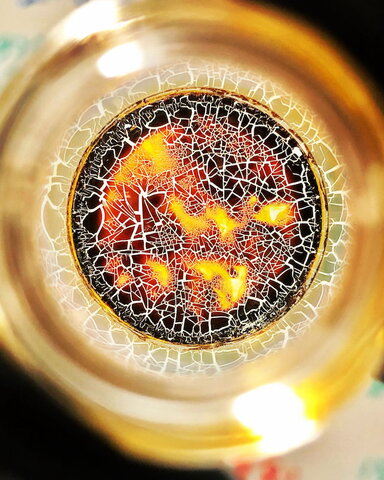
Winner - Main Category

Xiaolin Liu, Moore Lab, Department of Chemistry
Polymer mosaic
A thin, cracked polymer film resembling a stained- glass mosaic was observed after removing dichloromethane from a polymer solution with compressed air. Its delicate, irregular pattern and non-uniform thickness scatter light dynamically, producing a colorful display with striking contrast and a vibrant, ethereal effect.
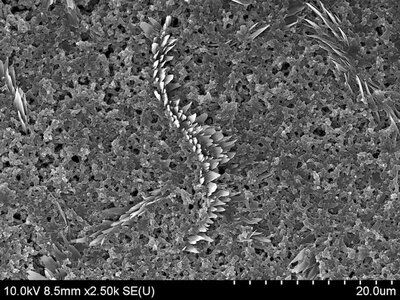
Ching-Yu Chen, Su Lab, Department of Chemical & Biomolecular Engineering
The rise of Godzilla from the sea
Presented is an SEM image of self-assembled aniline oligomers on top of a layer of polyaniline. The arrayed spikes consist of oligoaniline, a by-product of aniline electropolymerization reaction. Free oligoanilines in the solution can self-assemble through supramolecular forces and form diverse morphologies depending on the assembly conditions.
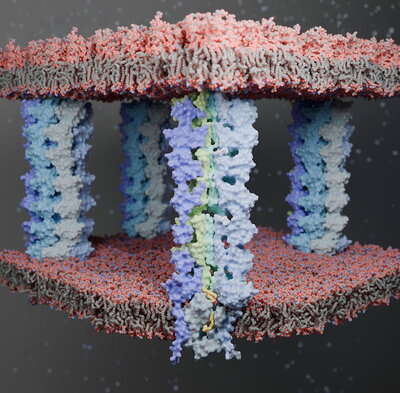
Yupeng Li, Tajkhorshid Lab, Center for Biophysics & Quantitative Biology, Departments of Chemistry and Biochemistry, Beckman Institute
Journey of a Phospholipid
The LetAB complex in Gram-negative bacteria is functioning as a unidirectional tunnel to transport phospholipids from inner to outer membrane. Captured is the moment when one phospholipid is extracted from the inner membrane, while another is positioned to transition from LetA into the envelope- spanning LetB tunnel.
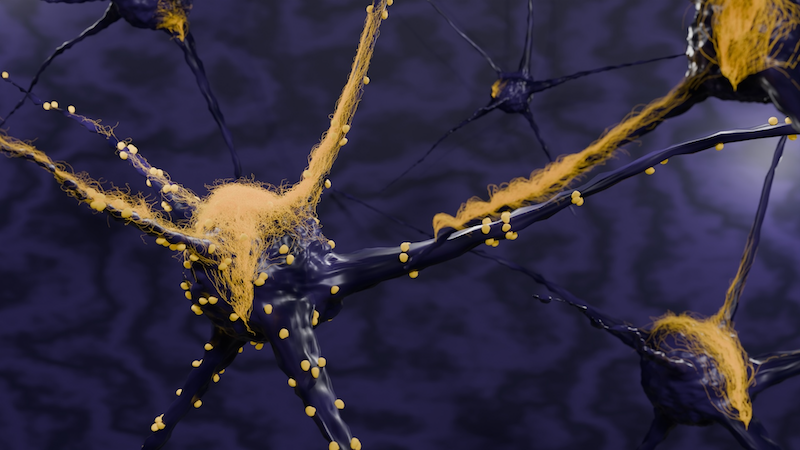
Aurosish Sharma, Zhao Lab, Department of Chemical & Biomolecular Engineering
The threads of cognitive decline
Amyloid-beta (Aβ) plays a complex role in Alzheimer’s disease. Toxic even before aggregating, soluble Aβ oligomers disrupt synaptic function by binding to neuronal receptors, impairing communication. Aggregated plaques (yellow color), an advanced hallmark of AD, cause neural damage, memory loss, and cognitive decline, emphasizing critical therapeutic targets to mitigate progression.
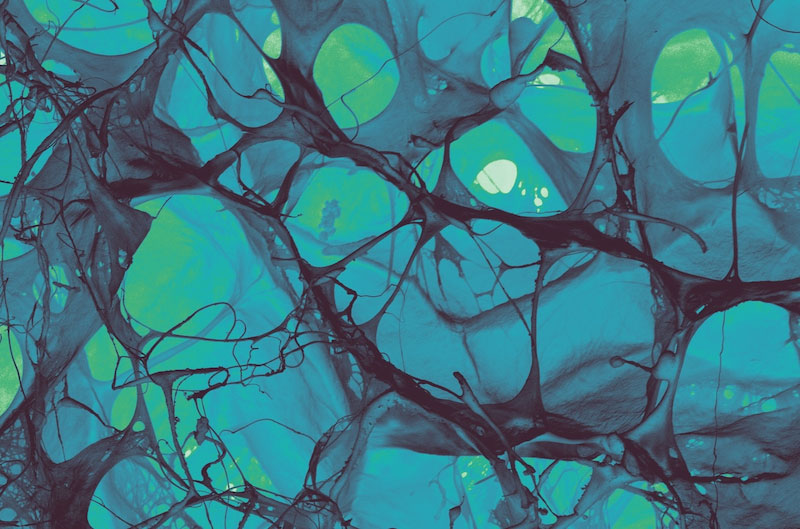
Kyle Timmer, Zhao Lab, Harley Lab, Department of Chemical & Biomolecular Engineering
Tangled Restoration
The microstructure of a collagen sponge designed to promote tendon-to-bone healing is captured with SEM and colorized. Because the body often struggles to heal musculoskeletal injuries, we fabricate materials with precise architectures that mimic the original tissue, guiding our cells to recognize and regenerate what was lost.
Winner Cover Art Category
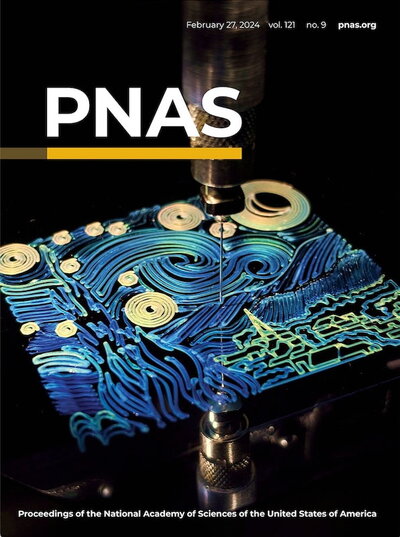
Sanghyun Jeon, Diao Lab, Department of Chemical & Biomolecular Engineering
A 3D-printed recreation of van Gogh’s “Starry Night."
Image created using a UV-assisted direct-ink-writing 3D printer and self-assembling bottlebrush block copolymer inks. This system enables the production of a wide range of structural colors and gradients in a single print with a single ink.